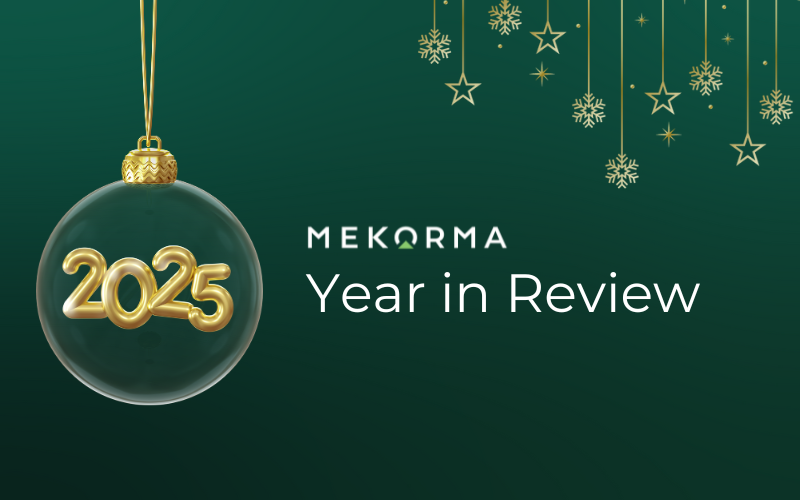Year-End 1099 Prep: How Continuous Compliance Simplifies Vendor Management

Practical steps to keep your vendor data clean, compliant, and audit-ready all year long
As year-end approaches, Accounts Payable (AP) teams are starting to shift into high gear, verifying tax IDs, reconciling vendor payments, preparing 1099s, and checking the Office of Foreign Asset Control (OFAC) list for changes.
But what if compliance didn’t have to be a last-minute rush?
It is possible to avoid the end-of-year panic by maintaining accurate, audit-ready data to reduce risk all year long. With automation and ERP-embedded vendor management tools, AP professionals can easily move from stressful, reactive reporting to the peace that comes from continuous compliance.
The Problem with “Once-a-Year” Validation
Vendor details change often, from new office addresses to updated tax IDs or changes in ownership. Without regular checks, these changes can quietly introduce gaps in your records that go unnoticed until reporting time, including:
1099 filing errors that trigger IRS penalties.
Delayed payments or manual rework for invalid vendor data.
Potential OFAC violations for payments made to restricted entities.
Fraudulent payments that result in financial and reputational loss.
The once-a-year or occasional vendor validation approach may check the compliance box temporarily, but it often leaves your team spending valuable time and money dealing with problems after they occur instead of preventing them in the first place.
As an alternative, we recommend taking an approach to compliance that is ongoing, offering your organization year-round protection that streamlines your processes every day and at year-end.
What is Continuous Compliance?
Continuous compliance is a proactive approach to managing vendor data. It shifts the focus from one-time validation to ongoing verification, continually confirming the accuracy and legitimacy of vendor information throughout the year.
In practice, that means vendor validation happens not only at onboarding, but also before every payment run. Tools like Mekorma Vendor Validation make this simple by offering automatic compliance checks that happen right inside Microsoft Dynamics 365 Business Central and GP.
Continuous compliance ensures that your vendor data stays up-to-date and accurate, and lets you know immediately if anything changes. It functions as steady, everyday protection rather than a one-time safeguard.
Practical Steps to Keep Your Vendor Data Clean Year-Round
To stay audit-ready throughout the year, continuous compliance works best when a few core elements are in place:
Automate Vendor Checks: Checking vendor data regularly is important but time consuming. Instead of working manually, use an automated vendor validation tool to reduce manual work and ensure checks happen consistently, without excess time or overhead.
Maintain Clear Audit Trails & Reporting: Protect sensitive vendor data and tax information through controlled access to your master file, along with secure data handling, separation of duties, and approval processes.
Document Every Validation Check: Maintain clear documentation of each validation event and the result. This recordkeeping will simplify audits and show due diligence if questions arise.
Regularly Review Vendor Data & Master File: Schedule recurring reviews for vendor data and master file changes. Continuous monitoring ensures that new risks are caught early, hopefully before any damage happens.
Together, these practices make compliance part of everyday operations instead of something revisited only at year-end.
Benefits Beyond Compliance
Reliable vendor data keeps your AP process running smoothly. It also offers several operational advantages, including:
Fewer surprises at year-end because vendor data is already current and verified.
Streamlined vendor management thanks to more efficient onboarding and payment processes.
Reduced correction cycles and less time spent reconciling vendor information across departments.
More reliable financial reporting, with clean vendor data flowing consistently into 1099s and other filings.
Greater resilience against fraud, especially as vendor impersonation and phishing tactics increase.
Confidence during audits, supported by clear documentation and a predictable process.
Moving from deadline-driven compliance to an ongoing practice gives AP teams greater operational stability and reduces risk across the financial workflow.
How Mekorma Supports Continuous Compliance & a Smoother Year-End Process
Vendor compliance is most effective when it’s built directly into your existing processes. Mekorma Vendor Validation empowers your team to step into continuous compliance with ease.
By automatically checking vendor data during onboarding and again at payment time, our solution helps ensure every transaction is either compliant or flagged for your team to follow up. With Vendor Validation, you can even stop payments automatically when issues are detected to avoid paying non-compliant or sanctioned vendors.
Routine compliance checks flow quietly in the background, reducing manual review and supporting strong internal controls. This supports consistent, audit-ready data without extra effort from your AP team.
When continuous compliance becomes part of daily operations, you can get rid of the last-minute rush and enjoy greater ease at year-end and year-round.
If you’re looking to strengthen your compliance process before year-end, now is a great time to explore Mekorma Vendor Validation.
We are currently offering discounted implementation until the end of 2025, making it easier and more affordable than ever to put continuous verification in place for the months ahead.

